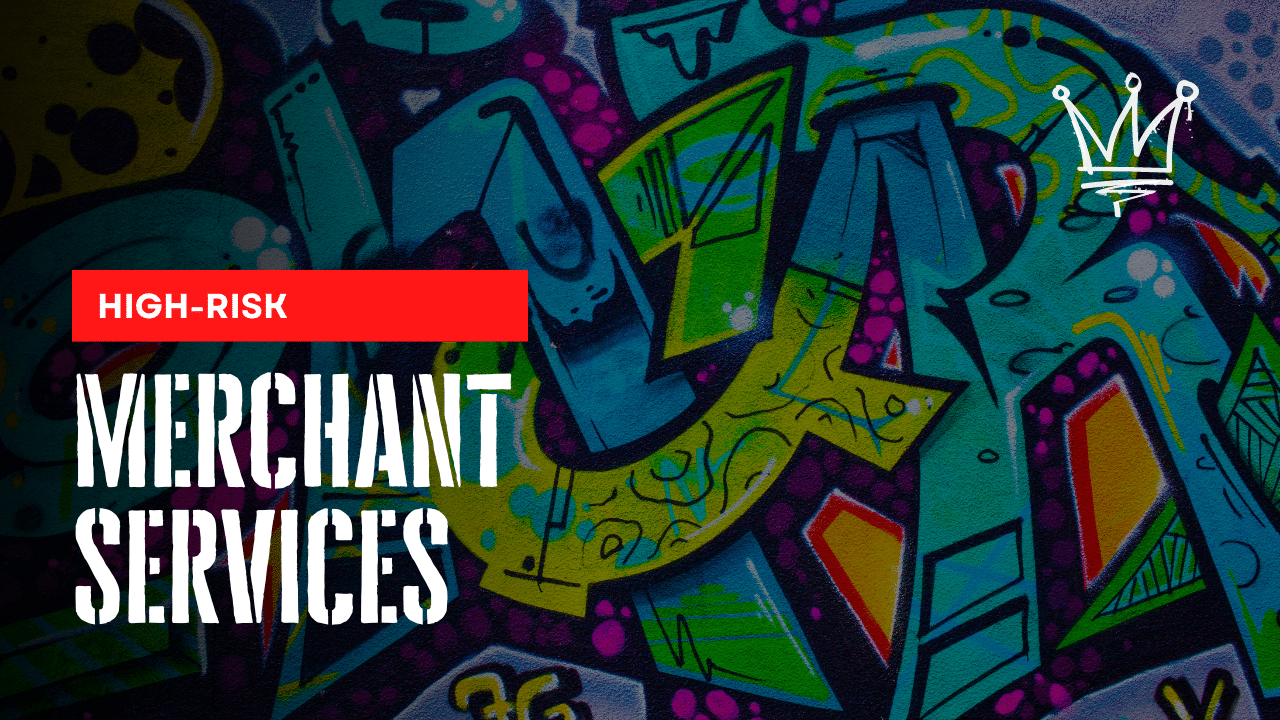
High-Risk Merchant Services
Table of Contents
- Introduction
- What Are High-Risk Merchant Services?
- Industries Considered High-Risk
- Challenges Faced by High-Risk Businesses
- The Importance of High-Risk Merchant Services
- How High-Risk Merchant Services Work
- Benefits of High-Risk Merchant Services
- Choosing the Right High-Risk Merchant Service Provider
- Factors to Consider When Selecting a Provider
- Steps to Set Up High-Risk Merchant Services
- Risk Management and Fraud Prevention
- Customer Support and Technical Assistance
- Pricing and Fees
- Case Study: High-Risk Merchant Services Success Story
- Conclusion
- FAQs
Introduction
In the world of e-commerce, businesses operate in various industries, each with its own set of risks. Some industries are classified as high-risk due to factors such as higher chargeback rates, legal and regulatory issues, or reputational risks. To navigate the challenges associated with these industries, businesses require specialized services known as high-risk merchant services. This article explores the concept of high-risk merchant services, their significance, and how they benefit businesses in high-risk industries.
What Are High-Risk Merchant Services?
High-risk merchant services refer to financial services provided to businesses operating in industries with a higher level of risk. These services are designed to meet the specific needs of companies facing challenges such as higher chargeback rates, legal and regulatory complexities, or reputational risks. High-risk merchant service providers offer tailored solutions to help these businesses process payments, manage risk, and maintain compliance.
Industries Considered High-Risk
Several industries are commonly categorized as high-risk due to their inherent nature or specific characteristics. Some examples of high-risk industries include:
- Online gambling and casinos
- Adult entertainment
- Travel and vacation rentals
- Pharmaceutical sales
- Forex trading
- Nutraceuticals and dietary supplements
- Online dating services
- Debt collection agencies
- Cryptocurrency exchanges
- E-cigarette and vaping industry
It’s important to note that this list is not exhaustive, and different providers may have their own classification criteria.
Challenges Faced by High-Risk Businesses
Businesses operating in high-risk industries face unique challenges that require specialized solutions. Some of the common challenges include:
- Higher chargeback rates: High-risk businesses are more prone to chargebacks, which occur when customers dispute transactions and request refunds. Managing chargebacks effectively is crucial for financial stability.
- Legal and regulatory complexities: High-risk industries often face stringent regulations and compliance requirements. Businesses must navigate these complexities to ensure legal and ethical operations.
- Reputational risks: Certain industries carry a higher risk of negative public perception. Maintaining a positive reputation and building customer trust is vital for sustained success.
- Limited payment options: Traditional payment processors may be reluctant to work with high-risk businesses, limiting their access to reliable payment solutions.
The Importance of High-Risk Merchant Services
High-risk merchant services play a crucial role in the success of businesses operating in high-risk industries. These services offer tailored solutions and support to address the unique challenges faced by these businesses. The importance of high-risk merchant services can be summarized as follows:
- Payment processing: High-risk merchant services provide businesses with reliable and secure payment processing solutions, allowing them to accept various payment methods and currencies.
- Risk management: These services offer risk management tools and strategies to mitigate the impact of chargebacks and fraudulent activities, safeguarding the financial stability of high-risk businesses.
- Compliance support: High-risk merchant service providers assist businesses in navigating complex legal and regulatory frameworks, ensuring compliance with industry-specific requirements.
- Reputation management: By implementing effective risk management practices, high-risk merchant services help companies maintain a positive reputation and build customer trust.
How High-Risk Merchant Services Work
High-risk merchant services work by providing businesses with specialized payment processing solutions tailored to their unique needs. The process typically involves the following steps:
- Application: Businesses interested in high-risk merchant services submit an application to a service provider. The provider evaluates the business’s industry, risk profile, and financial history to determine eligibility.
- Underwriting: Upon approval, the service provider conducts underwriting to assess the risk associated with the business. This includes evaluating chargeback history, financial stability, and compliance measures.
- Account setup: Once underwriting is complete, the service provider sets up a merchant account for the business. This account enables the company to process payments securely and efficiently.
- Integration: The high-risk merchant service provider assists the company in integrating payment processing solutions into its existing infrastructure, website, or mobile applications.
- Risk management and support: The service provider offers risk management tools and ongoing support to help the business manage chargebacks, fraud prevention, and compliance.
- Payment processing: With the account set up and integrated, the company can start accepting customer payments through various channels, such as credit cards, mobile payments, or alternative payment methods.
Benefits of High-Risk Merchant Services
High-risk merchant services offer several benefits to businesses operating in high-risk industries. Some key advantages include:
- Expanded payment options: These services enable businesses to accept various payment methods, accommodating customers’ preferences and increasing conversion rates.
- Enhanced security: High-risk merchant service providers implement robust security measures to protect sensitive customer data and minimize the risk of fraud.
- Chargeback management: High-risk merchant services help businesses minimize financial losses and maintain healthy cash flow by providing tools and strategies to manage chargebacks effectively.
- Compliance assistance: Service providers offer guidance and support to ensure businesses comply with industry regulations and mitigate legal risks.
- Dedicated customer support: High-risk merchant service providers typically offer specialized customer support, assisting companies with technical issues, payment inquiries, and other concerns.
Choosing the Right High-Risk Merchant Service Provider
When selecting a high-risk merchant service provider, businesses should consider several factors to ensure a suitable partnership. Some critical factors to consider include:
- Industry expertise: Look for a provider with experience in serving businesses within your industry, as they will be better equipped to understand your specific needs and challenges.
- Risk management solutions: Assess the provider’s risk management tools and strategies to determine how effectively they can help mitigate chargebacks and fraud.
- Compliance support: Verify that the provider understands relevant regulations and compliance requirements in your industry.
- Integration options: Consider whether the provider’s payment processing solutions can seamlessly integrate with your existing infrastructure, website, or mobile applications.
- Pricing and fees: Evaluate the provider’s pricing structure, transaction fees, and additional charges to ensure they align with your budget and revenue projections.
Steps to Set Up High-Risk Merchant Services
Setting up high-risk merchant services involves several steps to ensure a smooth and successful implementation. The following steps provide a general guideline:
- Research and comparison: Conduct a thorough investigation to identify reputable high-risk merchant service providers and compare their offerings, industry experience, and customer reviews.
- Application and underwriting: Apply to the chosen provider and undergo the underwriting process. Prepare the necessary documentation and be transparent about your business operations.
- Account setup and integration: Once approved, work with the service provider to set up your merchant account. This involves providing the necessary information and integrating payment processing solutions into your existing systems, such as your website or mobile applications.
- Customize risk management settings: Work closely with the provider to customize the settings according to your business’s needs. This may include setting thresholds for chargebacks, implementing fraud prevention measures, and establishing monitoring tools.
- Test and launch: Before going live, conduct thorough testing to ensure that the payment processing solutions function correctly and seamlessly integrate with your systems. This step helps identify and resolve any potential issues or glitches.
- Training and support: Familiarize yourself and your staff with the high-risk merchant service provider’s tools and features. Ensure everyone understands how to process payments, manage chargebacks, and utilize the risk management tools effectively.
- Ongoing monitoring and optimization: Regularly monitor your merchant account and leverage the reporting and analytics provided by the service provider. This lets you identify trends, track performance, and make data-driven decisions to optimize payment processing and risk management strategies.
Risk Management and Fraud Prevention
Effective risk management and fraud prevention are crucial for businesses operating in high-risk industries. High-risk merchant services offer various tools and strategies to mitigate risks and protect your business. Some standard risk management and fraud prevention measures include:
- Fraud detection and prevention systems: Implement advanced systems that analyze transaction patterns, detect suspicious activities, and help prevent fraudulent transactions.
- Chargeback management: High-risk merchant service providers assist businesses in managing chargebacks efficiently. This may involve dispute resolution, chargeback representment, and proactive customer communication.
- Address Verification Service (AVS): AVS is a tool that verifies the billing address provided by customers during the payment process, reducing the risk of fraudulent transactions.
- Tokenization and encryption: Implement tokenization and encryption technologies to secure customer payment data. Tokenization replaces sensitive data with unique tokens, while encryption ensures secure data transmission.
- 3D Secure authentication: Utilize 3D Secure protocols, such as Verified by Visa or Mastercard SecureCode, to add an extra layer of security to online transactions. This helps authenticate the cardholder and minimize the risk of unauthorized use.
Customer Support and Technical Assistance
High-quality customer support and technical assistance are vital when partnering with a high-risk merchant service provider. Look for a provider that offers responsive and knowledgeable support to address any concerns or issues that may arise. Consider the following aspects when evaluating customer support:
- Accessibility: Ensure that the provider offers multiple communication channels, such as phone, email, and live chat, so you can reach them conveniently when needed.
- Responsiveness: Prompt response times are essential when seeking assistance. Look for a provider known for their quick turnaround times in resolving customer inquiries.
- Technical expertise: The support team should possess technical expertise to guide you through the integration process, troubleshoot any technical issues, and provide solutions to maximize the effectiveness of their services.
- Proactive communication: A proactive provider will inform you about industry updates, regulatory changes, and new features or tools that benefit your business. This helps you stay ahead and adapt to evolving requirements.
Pricing and Fees
Pricing and fees vary among high-risk merchant service providers. It’s essential to understand the costs associated with the services offered clearly. Consider the following factors when evaluating pricing and fees:
- Transaction fees: Determine the transaction fees associated with different payment methods, such as credit cards, debit cards, and alternative payment methods. Compare these fees with your projected transaction volume to assess the impact on your profitability.
- Monthly fees: Some providers charge monthly fees for maintaining your merchant account. Clarify whether these fees apply and factor them into your budget.
- Chargeback fees: Understand the costs associated with chargebacks and the provider’s policies for managing and disputing chargebacks. Excessive chargebacks can result in additional fees or penalties.
- Additional services: Some providers offer other services, such as fraud prevention tools, reporting analytics, or recurring billing options, at an additional cost. Evaluate whether these services align with your business needs and determine if the benefits justify the extra expenses.
- Contract terms: Review the contract terms, including the length of the agreement and any early termination fees. Ensure that the terms are favorable and provide flexibility for your business.
Case Study: High-Risk Merchant Services Success Story
Nationwide Payment Systems, a leading provider in the online gaming industry, faced numerous challenges due to its classification as a high-risk business. With a growing customer base and a need for secure and reliable payment processing, they turned to a specialized high-risk merchant service provider. By leveraging high-risk merchant services, they achieved the following:
- Expanded payment options: The company offered customers various payment methods, including credit cards, e-wallets, and cryptocurrencies. This increased customer satisfaction and resulted in higher conversion rates.
- Robust risk management: The high-risk merchant service provider implemented advanced risk management tools, reducing chargeback rates and protecting the company from fraudulent activities. This resulted in significant cost savings and improved financial stability.
- Compliance support: The provider helped the company navigate complex regulatory frameworks, ensuring compliance with industry-specific regulations and minimizing legal risks.
- Dedicated customer support: The company benefited from personalized customer support, timely assistance for technical issues, payment inquiries, and general support. This enhanced their operational efficiency and customer satisfaction.
By partnering with a high-risk merchant service provider, Nationwide Payment Systems overcame the challenges associated with their industry and experienced substantial growth, establishing itself as a reputable and trusted player in the online gaming sector.
Conclusion
High-risk merchant services are vital in supporting businesses operating in high-risk industries. These services provide tailored solutions to address the unique challenges faced by these businesses, including higher chargeback rates, legal complexities, and reputational risks. By partnering with a reputable high-risk merchant service provider, companies can benefit from expanded payment options, robust risk management, compliance support, and dedicated customer assistance. Through effective risk management and fraud prevention, businesses can safeguard their financial stability and maintain a positive reputation within their industry.
FAQs
- What are high-risk merchant services? High-risk merchant services are specialized financial services provided to businesses operating in industries with a higher level of risk. These services offer tailored solutions to help businesses in high-risk industries process payments, manage risk, and maintain compliance.
- Which industries are considered high-risk? Some industries commonly categorized as high-risk include online gambling and casinos, adult entertainment, travel and vacation rentals, pharmaceutical sales, forex trading, nutraceuticals, dietary supplements, online dating services, debt collection agencies, cryptocurrency exchanges, and the e-cigarette and vaping industry.
- What are the challenges faced by high-risk businesses? High-risk businesses face higher chargeback rates, legal and regulatory complexities, reputational risks, and limited payment options. These challenges require specialized solutions to ensure financial stability and operational success.
- How do high-risk merchant services work? High-risk merchant services work by providing businesses with specialized payment processing solutions tailored to their unique needs. This includes account setup, integration with existing systems, risk management tools, and ongoing support.
- What are the benefits of high-risk merchant services? High-risk merchant services offer benefits such as expanded payment options, enhanced security, effective chargeback management, compliance assistance, and dedicated customer support. These services help businesses navigate the unique challenges of high-risk industries and ensure smooth payment processing while mitigating risks.
- How can high-risk merchant services help with risk management and fraud prevention? High-risk merchant service providers offer tools and strategies for risk management and fraud prevention. These may include advanced fraud detection systems, chargeback management assistance, address verification services, tokenization and encryption of customer data, and 3D Secure authentication protocols.
- What kind of customer support can I expect from a high-risk merchant service provider? A reliable high-risk merchant service provider offers accessible and responsive customer support through multiple channels like phone, email, and live chat. Their support team possesses technical expertise and assists with integration, troubleshooting, and addressing any concerns or inquiries.
- What factors should I consider when evaluating the pricing and fees of high-risk merchant services? When assessing pricing and fees, consider transaction fees for different payment methods, monthly fees, chargeback fees, additional service costs, and contract terms. Ensure the pricing structure aligns with your business’s projected transaction volume and budget.
- Can you provide a success story of a business benefiting from high-risk merchant services? Sure! Nationwide Payment Systems, a reputable player in the high-risk industry, faced challenges due to its classification. By partnering with a high-risk merchant service provider, they expanded payment options, implemented robust risk management, received compliance support, and benefited from dedicated customer assistance. This led to significant growth and established them as a trusted industry leader.
- How can high-risk merchant services help businesses maintain a positive reputation? High-risk merchant services assist companies in managing chargebacks, implementing fraud prevention measures, and ensuring compliance with regulations. By minimizing financial losses, preventing fraudulent activities, and adhering to legal requirements, businesses can safeguard their reputations and build customer trust.
In conclusion, high-risk merchant services are essential for businesses operating in high-risk industries. These services provide tailored solutions to address industry-specific challenges, ensure secure payment processing, manage risks, and maintain compliance. By partnering with a reputable high-risk merchant service provider, businesses can overcome hurdles, expand their payment options, enhance risk management, receive compliance support, and provide exceptional customer experiences. It is crucial for businesses in high-risk industries to carefully evaluate providers, consider their specific needs, and choose the right high-risk merchant service provider to unlock growth and success.








